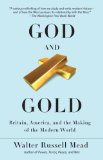Summary | Excerpt | Reviews | Beyond the Book | Readalikes | Genres & Themes | Author Bio

Critics' Opinion:
Readers' Opinion:
First Published:
Oct 2007, 464 pages
Paperback:
Oct 2008, 464 pages
 Book Reviewed by:
Book Reviewed by:
Paul Hughes
Buy This Book
Through the rest of Elizabeth's reign, the legal situation of Catholics would deteriorate or improve as the war with Spain grew more or less dangerous. Then an unprecedented attempted act of terrorism in 1605 led to a new and darker period for English Catholics in the reign of her successor.
On November 5, 1605, an extremist Catholic group put barrels of gunpowder beneath the Parliament building in London with plans to detonate the bomb when the Lords, Commons, and king were all gathered together. Although only a handful of Catholics were directly involved, and although the large majority of English Catholics probably opposed the so-called Gunpowder Plot, the old laws were brought back into force and new laws were quickly passed against a minority that was now perceived as more dangerous than ever. Anyone who refused to take an oath of allegiance to James I, which was worded in a way that was difficult if not impossible for conscientious Catholics to take, could be deprived of all landed property and imprisoned for life.
Up until the outbreak of the English Civil War in 1642 the situation of Catholics gradually improved; there was what would have been called a thaw in the cold war, and in the absence of security threats the enforcement of the laws against Catholics was relaxed. In 1632 an English Catholic was able to publish a group of sonnets in honor of the Virgin Mary; the works of at least one French Jesuit were translated into English and published at Oxford.[15]
The politics of religion grew increasingly fraught in England as the civil war approached. During the war, Catholics largely supported the Royalist side; Charles I, now king, was married to the Catholic French princess Henrietta Maria, and the increased tolerance of the Catholic minority during the 1630s was due to royal, not parliamentary, influence. The victorious Puritans were quick to retaliate; Catholics were punished for being both royalists and heretics. At least sixteen hundred had their homes and land confiscated.[16]
When Cromwell seized power in 1653, he relaxed enforcement of the anti-Catholic laws. After years of civil strife, England needed peace and stability; Cromwell hoped that compromise and toleration would stabilize the realm. The war with Spain changed that, as national-security-conscious conservative Protestants in Parliament demanded tough action against the minority.
About a month after Cromwell's evil-empire speech, a new bill was introduced. Anyone suspected of being a papist was to be summoned before a court to swear an oath of abjuration. This oath was much tougher than the one introduced after the Gunpowder Plot. No honest Catholic could possibly swear to it:
"I, [NAME], abhor, detest, and abjure the authority of the Pope, as well in regard of the Church in general, as in regard of myself in particular. I condemn and anathematize the tenet that any reward is due to good works. I firmly believe and avow that no reverence is due to the Virgin Mary, or to any other saint in heaven; and that no petition or adoration can be addressed to them without idolatry. I assert that no worship or reverence is due to the sacrament of the Lord's Supper, or to the elements of bread and wine after consecration, by whomsoever that consecration may be made. I believe there is no purgatory, but that it is a popish invention; so is also the tenet that the Pope can grant indulgences. I also firmly believe that neither the Pope, nor any other priest can remit sins, as the papists rave."[17]
Those who refused to swear to this oath immediately lost two-thirds of all their goods; and a second refusal to swear would lead to the confiscation of two-thirds of their remaining goods, and so on. In the past, Catholics had been able to avoid the penalties by settling their estates on their wives. No more: the loopholes were nailed shut.
The law was controversial, even at the time. Lambert Godfrey, a lawyer representing the county of Kent in Parliament, saw the law as an abomination: "I know no difference between it and the Inquisition, only one racks and tortures the purse, the other the person."[18] Lambert was eloquent, but the bill passed—with only forty-three votes dissenting. It proved very useful in separating Irish Catholics from their homes.
Excerpted from God and Gold by Walter Russell Mead Copyright © 2007 by Walter Russell Mead. Excerpted by permission of Knopf, a division of Random House, Inc. All rights reserved. No part of this excerpt may be reproduced or reprinted without permission in writing from the publisher.





The Flower Sisters
by Michelle Collins Anderson
From the new Fannie Flagg of the Ozarks, a richly-woven story of family, forgiveness, and reinvention.

The House on Biscayne Bay
by Chanel Cleeton
As death stalks a gothic mansion in Miami, the lives of two women intertwine as the past and present collide.

The Funeral Cryer by Wenyan Lu
Debut novelist Wenyan Lu brings us this witty yet profound story about one woman's midlife reawakening in contemporary rural China.
Your guide toexceptional books
BookBrowse seeks out and recommends the best in contemporary fiction and nonfiction—books that not only engage and entertain but also deepen our understanding of ourselves and the world around us.